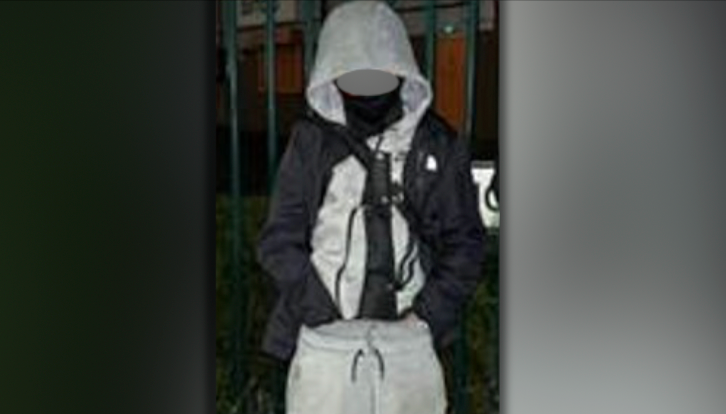Shawn Seesahai: Young killers' sentences challenged

Shawn Seesahai was 19 when he was murdered by two 12-year-old boys in Wolverhampton
- Published
The sentences of two 13-year-old boys who murdered Shawn Seesahai with a machete in a park have been referred to the Court of Appeal.
The pair were 12 when they stabbed the 19-year-old in an unprovoked attack in Wolverhampton last November, and were detained for eight years and six months.
Concerns were raised their tariffs were too lenient, which led to a review by the Attorney General's Office (AGO).
An AGO spokesperson said: "These sentences have now been referred to the Court of Appeal under the Unduly Lenient Sentence scheme."
Parents Maneshwary and Suresh told the BBC on Tuesday they were happy the case had been referred and that the boys' minimum terms could be increased.
The boys, who cannot be identified because of their ages, are the youngest convicted killers since Robert Thompson and Jon Venables, who murdered two-year-old James Bulger in 1993.

Maneshwary and Suresh Seesahai said they were pleased the case has been referred to the Court of Appeal
Shawn Seesahai had travelled to the UK from his home on the Caribbean island of Anguilla for medical treatment for an eye injury, and had been living in Birmingham.
He had only been in the UK for six months when he was repeatedly stabbed with a machete that was nearly a foot and a half long.
His family expressed anger and disappointment at the sentence passed by Mrs Justice Tipples in September.
They could not afford to travel to the UK to see the boys being sentenced so followed proceedings via video link. The couple were not aware the case had been referred to the Court of Appeal.
The AGO, which does not disclose who submits requests, had said it had "28 days from sentencing to consider the case and make a decision".
The Unduly Lenient Sentence scheme, external allows anyone to ask the AGO to review certain crown court sentences.
The attorney general or the solicitor general will conduct the review and, if they consider the sentence too lenient, they can then ask the Court of Appeal to review the issue and make a final decision.
Follow BBC Wolverhampton & Black Country on BBC Sounds, Facebook, external, X, external and Instagram, external.
Related topics
- Published27 September 2024

- Published27 September 2024

- Published10 June 2024
